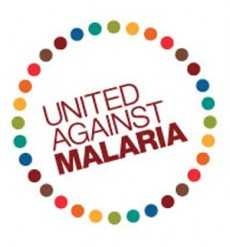Executive Director of the Institute of Public Health in Ghana, Dr Frank Baiden, has expressed concern over the wasteful use of anti-malarial medicines in the various health facilities, pharmaceutical and chemicals shops in Ghana.
According to him, the phenomenon which is triggered by the fear of being killed by malaria also has a high tendency of making the population and the mosquito parasites resistant to malaria drugs.
He, therefore, urged all health personnel in the country to ensure they abide by the new rule of testing patients to be sure of their malaria status before prescribing malaria drugs for them.
Dr Baiden, a lecturer at the Ensign School of Public Health, Kpong, gave the caution at a day’s malaria sensitisation workshop for journalists in Ho.
The workshop was organised by the Africa Media and Malaria Research Network (AMMREN) and supported by the Ghana Health Service and the Volta Regional Hospital (VRH), popularly referred to as ‘Trafalgar’.
Test-treat-track, fever is not malaria
He cautioned health personnel and the public against confusing fever with malaria, stressing that “fever is not malaria.”
The lecturer said fever can be caused by common cold, stress and several viral infections that are self-limiting, thus, “it will go by itself without treatment.”
Dr Baiden added that “every case of fever has to be confirmed through a test before we call it malaria and treat it as such.”
A wrong prescription of malaria, he mentioned, only brings some suffering to the patient due to the side effects of the drug.
Recounting how the African continent and other malaria-prone areas in the world became resistant to the chloroquine treatment in the 1990s, Dr Baiden pointed out that most of the gains made in the period were depleted as a lot of people died from malaria, hence the advent of the current Artesonate drug.
Currently, Artesonate resistance has already started around the Thai-Cambodian border in the Far East where there is breakdown in the health system.
He, therefore, called on donors, government, the National Malaria Control Programme and other NGOs to help make the rapid diagnostic test kit (RDT) accessible, just like condoms, so that everyone can easily test before treatment.
Global Strategy
Medical Director of the (VRH), Dr Lord G. Mensah, emphasised the theme for this year’s World Malaria Day ‘End Malaria for Good’ couldn’t come at a better time as 3.2 billion people in the world are at risk of the malaria, particularly pregnant women, children and non-immune travellers in malaria-prone areas.
Executive Director of AMMREN, Charity Binka, disclosed that gains made over the years were signs that many countries were on the path of eliminating Malaria. For instance, as at 2015, more than half (57) out of 106 countries with malaria had achieved about 75% reductions in new malaria cases.
She, therefore, supported the WHO Global Strategy for Malaria that estimates that between 2016 and 2030, malaria case incidence should have been reduced by 90%.
Madam Binka, therefore, stressed the need to equip African journalists to communicate the issues better to make Africa malaria-free.
Volta regional focal person on malaria, Dr Roland Glover, observed that the last time the region lost a pregnant woman with malaria was in 2013, thus, only one person.
He added that despite the effective case management in the region, the region lacks inadequate logistics, prescribers and technical staff in the grassroots, intermittent shortage of drugs, high attrition of experience staff, lack of private sector support and irregular supervision in some areas.
Health News of Thursday, 28 April 2016
Source: dailyguideafrica.com
Doctor cautions over anti-malarial drugs use
 File photo
File photo
















